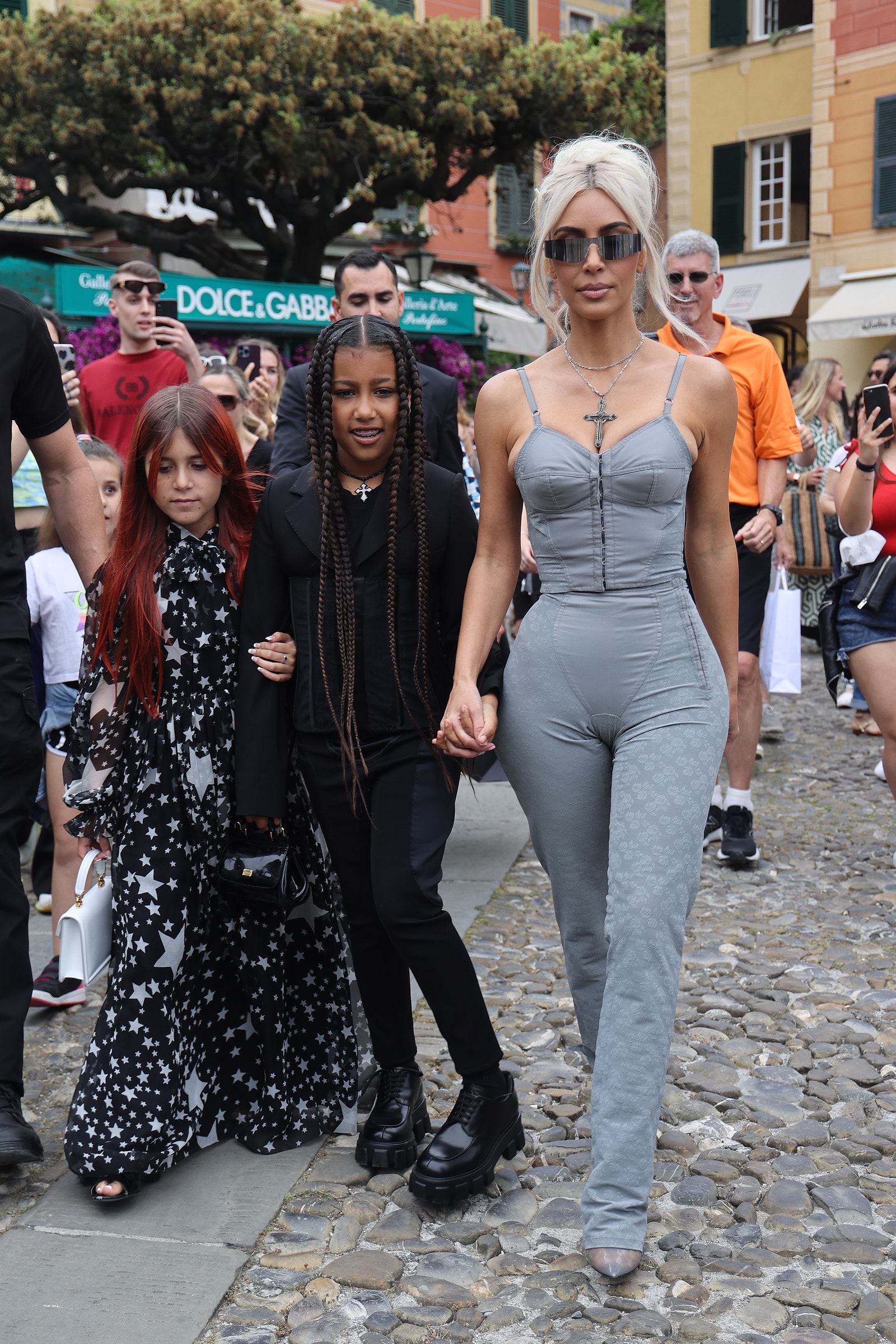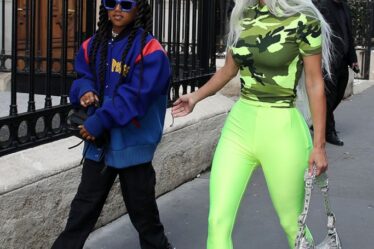
Getty Images
Kourtney Kardashian and Travis Barker’s Catholic-cosplay wedding, although joyous, seems like just another transaction for the family. And it’s another example in the long line of strategic partnerships Dolce & Gabbana has brokered to maintain its influence and attract a fresh pair of eyes who may not know about the brand’s history or feel like the statute of limitations has passed on protesting the company’s gaffes. If a Kardashian is wearing a cool gray unitard out on the glamorous streets of Portofino, you might hear of a young woman dipping into her savings account to buy the same outfit.
Fashion will always be fashion. As beautiful and magical as garments can be, it is the understatement of the century to say that some people, despite all the harm they’ve done to certain communities, will never be canceled. In reality, it doesn’t matter if advertisers don’t designate spaces in a glossy or people call for worldwide boycotts: When literally the most famous family our nation has probably ever known wants to broadcast your brand to their billion-plus Instagram followers, it sends a message that probably won’t contribute to D&G fading away into the darkness of a clearance rack anytime soon. And people won’t ever stop following the Kardashian family or buying what they’re selling, even if they’re disappointed by their actions.
Getty Images
Granted, partnerships in fashion can be used for good. Digital It girl Emma Chamberlain’s becoming a Louis Vuitton ambassador signals fashion’s move toward tapping into the Gen Z market, according to Vogue Business, while Tiffany & Co.’s Not Your Mother’s campaign was a step into listening to what younger consumers want, albeit shakily, per Business of Fashion.
But when celebrities with the power to take a stand partner with brands that have caused hurt, I have to wonder: Is it really worth it? And, if it is, what does that say about the people we idolize?



